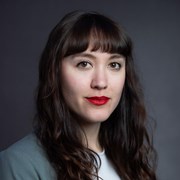OLAMUR will bring together state-of-the-art practices in multi-use low trophic aquaculture (MU-LTA) in both low and high salinity offshore waters with key industry partners. The project will achieve at least TRL7 and paving the way for a low- impact and low-carbon seafood industry.
OLAMUR will result in far-reaching progress to provide a framework for fair, healthy, safe, climate – and environmentally friendly offshore low-trophic aquaculture within multi-use systems, contributing to feed and food security in Europe and globally. The project is transdisciplinary with a team including partners from industry, SME, NGOs, universities, and research institutes.
Objectives:
- Establish 3 pilot demonstration sights (See photo) to farm seaweed integrated with an offshore wind farm (OWF).
- Identify locations for multi-purpose uses of the marine space that can support future development of low-impact and low-carbon uses in the North and Baltic Seas.
- Assess suitability of locations for the industrial production of low trophic species of economic interest in the North and Baltic Seas.
- Develop a robotics model-based monitoring, forecasting and assessment capacity for enabling corresponding services for aquafarms and decision makers.
- Develop a data-based management support system for monitoring and data analysis for aquaculture including risk analysis to producers.
- Perform a life cycle assessment to ensure economic viability for all actors involved in the value chain and document the circularity of resource management.
- Co-create holistic multi-level governance solutions for innovations in offshore seaweed and shellfish farming in the three pilot sites.

Photo: Institute of Marine Research
The project is split into 7 technical working packages. SINTEF Ocean leads WP7 on 'Governance of integrated socio-ecological-technical system'. SINTEF Ocean will integrate regulatory frameworks and policies for promoting and supporting maritime co-use of space.

